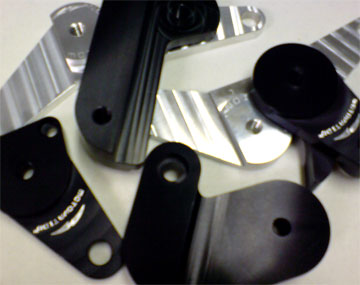Categories
Motovation Blog
- Feb 15, 2024 How does motorcycle traction control work? How it saves us all!
- Jan 21, 2024 Are Bonamici Racing rearsets the best? Precision Unleashed: Bonamici Racing Rearsets
The Motovation Difference
|
The MOTOVATION Frame Sliders Difference: All our frame sliders and other sportbike protection accessories feature machined aluminum inserts which ensure the strongest possible contact between the frame slider, bolt and frame of your motorcycle. Additionally all our frame sliders come with high quality components like replacement galvanized 12.9 grade hardened steel socket head cap screws, 304 grade stainless steel washers and aircraft grade lock nuts(where applicable). Our components were carefully chosen so as to construct a system consisting of a series of staged sacrificial items during the event of a lowside or slide. No system is fool proof but a lot of work and thought had gone into our designs to try and provide our customers the best value for their money. |
|
 |
Fasteners Washers: We only use 304 grade stainless steel in all our slider kits to reduce metal to metal corrosion and binding. |
 |
Brackets All our brackets are CNC machined from T6 alloy. This material offers the optimum weight to strength to elasticity ratio we could find in an aluminum alloy. We never use stainless steel or steel castings or welded steel brackets as they are much too strong. Cheap to manufacture but not ideal for their intended use.The majority of the components on your bike including the frame are made of aluminum. Using a steel bracket to attach a slider to a frame will cause too much of the impact forces to to transferred to the frame. Especially when the bracket's offset nature causes the forces to be amplified. All our brackets also have built in braces in their design to prevent rotation during impact events and to also help distribute those stresses over a larger area of the frame. |
 |
Frame Slider Material |

